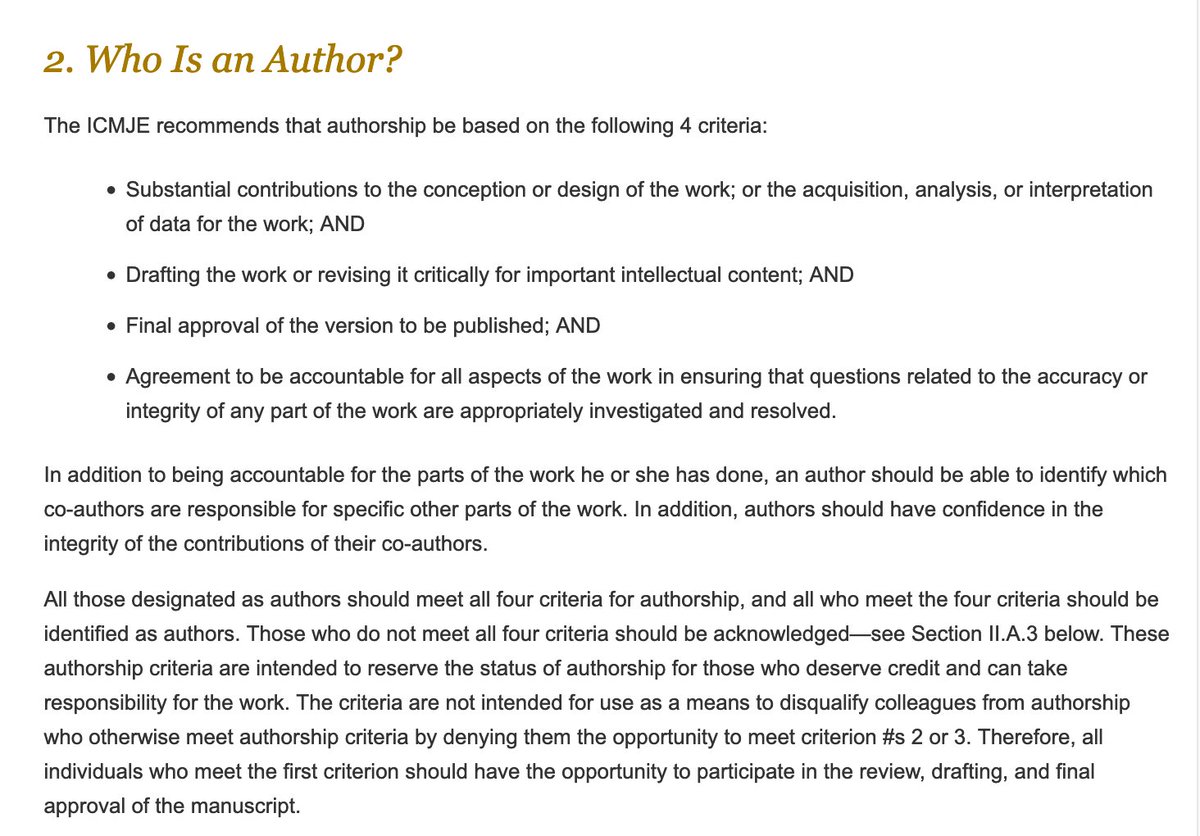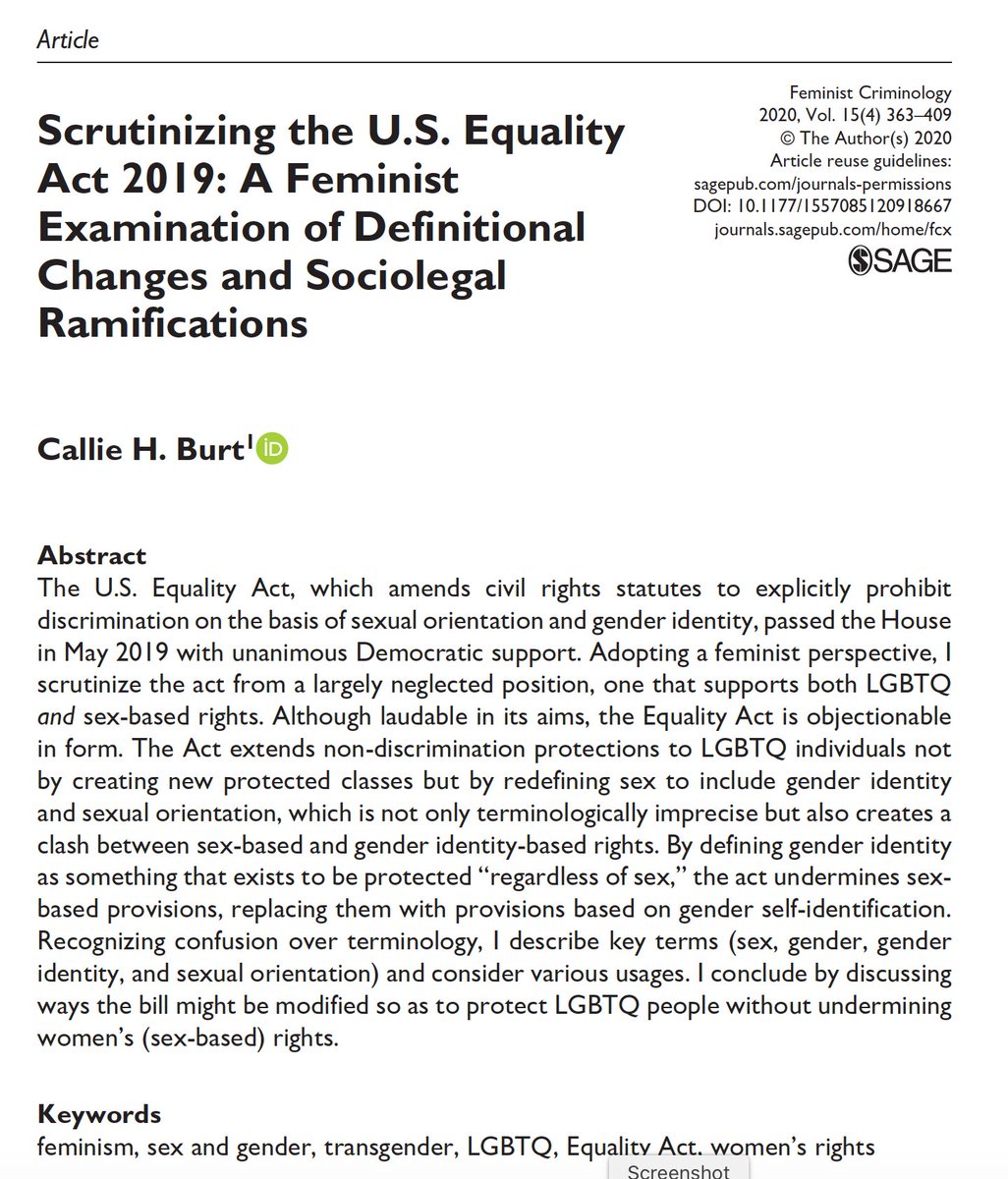
Sexism in the Academy: An excellent, detailed account of how male dominance in the academy and scholarship is sustained (2019). nplusonemag.com/issue-34/essay… via @nplusonemag 1/15
Women now comprise a bit over half of undergrad students but the proportions decline at every stage of the academic hierarchy “While there were significant gains during much of the 20th century, feminist progress in the academy has slowed and may have already come to a halt” 2/15
Academic ranks are still male-dominated. Banal sexist practices, not ugly misogyny, explain most of the problem. “This durable, unjust structure largely depends on the attitudes and practices of three social groups: male scholars, male students, and male romantic partners.” 3/15
Male candidates are rated more highly than female. Women’s competence doubted, and often asked to ‘prove it again’. Women are expected to work harder than men for the same results, e.g. in publication. 4/15
Women risk receiving much less credit than men for work they have done, or it’s even attributed by others to men. Men more likely than women to receive grants, and receive more money. Men are more likely to cite men than women. 5/
Female scholars’ progress is constrained by sexual harassment. While men’s SH can benefit the sexual harassers’ careers and professional success, and that of other men, by systematically undermining women. hugeog.com/wp-content/upl… 6/15 

“Women’s attempts to secure tenured positions in the academy are undermined by secretive informal networks that secure jobs for their members.” 7/15
The 3 mechanisms for instituting academic patriarchy discussed so far..: 1. men’s preference for men (whether for students, citations, or granting tenure); 2. skepticism about women’s abilities; 3. harassment. 8/15
A fourth cateogry of sexist practice is ‘vanity’. Example of self-citation. Male scholars twice as likely as female to cite his own work. Intensifies the gender gap in citation and impact. 9/15
“Male undergraduates demonstrate a sharp bias against both their female peers and female instructors”. “male students overwhelmingly favor male instructors over female ones”. Influence of student evaluations on career. 10/15
Also the expectation that female teachers will do more ‘mothering’ (which leaves less time for research). And more likely to be evaluated in terms of preparation, versus charisma and knowledge (that takes less preparation). 11/15
Women’s careers are often sabotaged by their own husbands and partners. Male scholars are much more likely to have a spouse stay at home and less likely to face the “two-body problem”. And this problem typically is decided in men’s favour. 12/15
Academic husbands are more likely than academic wives to see their own careers as coming first, to expect their spouse to make career sacrifices to help them. Having children slows down women’s careers but not men’s. 13/15
“While structured inequality produces aggregate effects, it is essential to remember that it simultaneously causes intensely individual suffering. […] like all scholars, women eschew potential riches to seek their intellectual fortune, motivated by a passion to learn and teach.
That so many are forced to relinquish this goal because of condescending or lewd supervisors, selfish spouses, smug students, and prejudiced hiring committees is in every case a personal tragedy of an unfulfilled life.” 15/15
PS. Apologies for the three or so typos in these tweets. Clearly I needed more coffee.
There's a literature on how women can survive and thrive in academia, and overlapping with this, on feminist advocacy and gender equality work in universities. I've compiled some of this, in the last section of xyonline.net/books/bibliogr…. Not my area, and additions are welcome.
Note too the two pieces on what male academics can do I tweeted earlier today: 1) Don’t be that dude: tenureshewrote.wordpress.com/2013/09/26/don… @TenureSheWrote; 2) Male academics: Ten Things You Can Do Now to Improve the Climate for Women in Your Department: advance.cc.lehigh.edu/sites/advance.…
• • •
Missing some Tweet in this thread? You can try to
force a refresh





